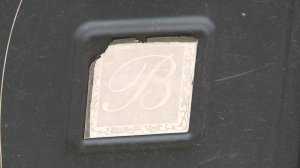 COVINGTON, La. (WGNO) — The Saint Tammany Parish District Attorney’s Office announced Thursday (April 7) that a grand jury declined to bring charges against a woman who shot and killed her husband last year inside their home in Folsom.
COVINGTON, La. (WGNO) — The Saint Tammany Parish District Attorney’s Office announced Thursday (April 7) that a grand jury declined to bring charges against a woman who shot and killed her husband last year inside their home in Folsom.
Kacie Breen said she shot and killer her husband, Dr. Wayne Breen, during an argument. Wayne Breen was an obstetrician/gynecologist in Covington.
 As his detectives began investigating the case last year, St. Tammany Sheriff Jack Strain said that the Breens were home with their son and fell asleep after watching a movie. Then, at about 3 a.m., the couple began fighting.
As his detectives began investigating the case last year, St. Tammany Sheriff Jack Strain said that the Breens were home with their son and fell asleep after watching a movie. Then, at about 3 a.m., the couple began fighting.
“We also know that what started in a discussion about their relationship escalated to an argument then to physical violence and then unfortunately causing Dr. Breen his life,” Strain told WGNO News. Strain also said the couple had a history of domestic violence that included a restraining order in 2012 that had expired by the time of the shooting.
The St. Tammany Coroner’s Office said Wayne Breen was shot twice in the chest. The sheriff’s office decline to bring charges against Kacie Breen.
“The grand jury has spoken in this very tragic case,” District Attorney Warren Montgomery said in a written statement on Thursday. “We presented all the evidence we had to the members of this grand jury. They were able to subpoena witnesses, examine evidence, and question witnesses. After receiving the sheriff’s investigative report, we conducted an additional grand jury inquiry to uncover any possible new evidence. We also brought in an outside expert in crime scene reconstruction to review the case. After an exhaustive examination, he concluded that there was no evidence to contradict what Kacie Breen said to the police.”
Montgomery also said in his statement that in order to prove their case, prosecutors would have to prove their case beyond a reasonable doubt and that the grand jury felt there was insufficient evidence.





















